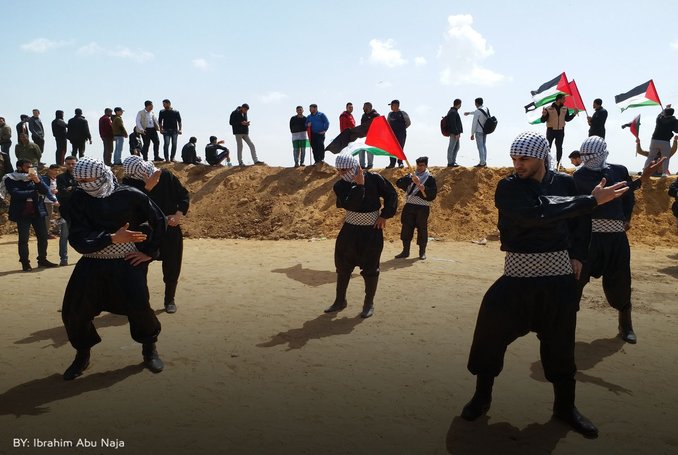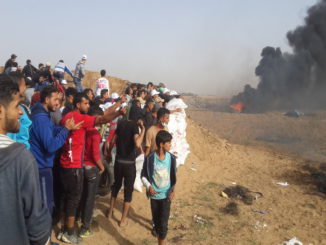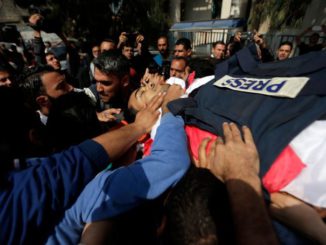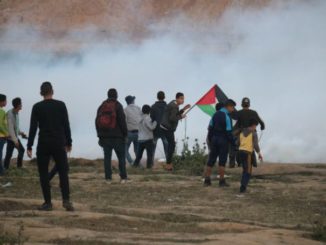
By Human Rights Watch
Senior Israeli officials who unlawfully called for use of live ammunition against Palestinian demonstrations who posed no imminent threat to life bear responsibility for the killings of 14 demonstrators in Gaza and the injuring of hundreds on March 30, 2018, Human Rights Watch said today
Both before and after the confrontations, senior officials publicly said that soldiers stationed along the barrier that separates Gaza and Israel had orders to target “instigators” and those who approach the border. However, the Israeli government presented no evidence that rock-throwing and other violence by some demonstrators seriously threatened Israeli soldiers across the border fence.
The high number of deaths and injuries was the foreseeable consequence of granting soldiers leeway to use lethal force outside of life-threatening situations in violation of international norms, coupled with the longstanding culture of impunity within the Israeli army for serious abuses.
“Israeli soldiers were not merely using excessive force, but were apparently acting on orders that all but ensured a bloody military response to the Palestinian demonstrations,” said Eric Goldstein, deputy Middle East director at Human Rights Watch. “The result was foreseeable deaths and injuries of demonstrators on the other side of a border who posed no imminent threat to life.”
Senior Israeli officials who unlawfully called for use of live ammunition against Palestinian demonstrations who posed no imminent threat to life bear responsibility for the killings of 14 demonstrators in #Gaza https://t.co/6aoN9kZp6u pic.twitter.com/SYfEq7xZlR
— Human Rights Watch (@hrw) April 3, 2018
The killings highlight the importance of the International Criminal Court prosecutor opening a formal investigation into serious international crimes in Palestine, Human Rights Watch said.
Organizers of this year’s Land Day demonstrations said they would also affirm Palestinians’ internationally recognized right of return. Most of the thousands who participated in Gaza stayed in tent encampments, due to remain in place until May 15, the 70th anniversary of the Nakba (Arabic for “catastrophe”), the displacement of Palestinians that accompanied the founding of the Israeli state. The tent villages were pitched at various points about 500 meters inside the border.
The number of Palestinians killed and gravely wounded by Israel's soldiers firing into #Gaza is shocking. @HRW statement pic.twitter.com/KCGGKjfLUe
— Human Rights Watch (@hrw) March 30, 2018
While most of the people in the tent villages did not approach the border, groups of mostly young men did so, some throwing stones, and, according to the IDF, “Molotov cocktails” (improvised gasoline bombs). Israeli forces directed fire at these men, killing 14 and injuring 1,415 – 758 of them with live ammunition, according to Gaza’s Health Ministry. Rubber bullets and teargas injured others. The Israeli army disputes these figures, contending that the number of Palestinians injured by live ammunition was likely in the dozens.
While some protesters near the border fence burned tires and threw rocks, Human Rights Watch could find no evidence of any protester using firearms or any IDF claim of threatened firearm use at the demonstrations. The IDF spokesperson, in a tweet posted in the early morning of March 31, “Everything you need to know about the riots in Gaza today,” accused demonstrators of “hurling burning tires, throwing Molotov cocktails, and attempting to harm or destroy Israel’s security infrastructure.” It made no mention of Palestinians using firearms at the protests.
Gaza Killings Unlawful, Calculated.
The Daily Briefhttps://t.co/Rn3tbq5lX6 pic.twitter.com/99p5lKHwre— Human Rights Watch (@hrw) April 3, 2018
Human Rights Watch reviewed footage it believes authentic based on an interview with the videographer that appears to show a demonstrator shot in the leg while praying and another video showing a man shot while throwing a rock. Other videos reviewed appear to show demonstrators shot while slowly walking toward the border empty-handed or holding only a Palestinian flag or retreating from the border. Interviews with six witnesses, including three journalists, indicated that soldiers shot at men who were in the area between the encampments and the fence but who posed no grave threat to anyone across the fence.
Entering a zone declared off limits should not be a crime considered punishable by death, Human Rights Watch said.
(HRW)







